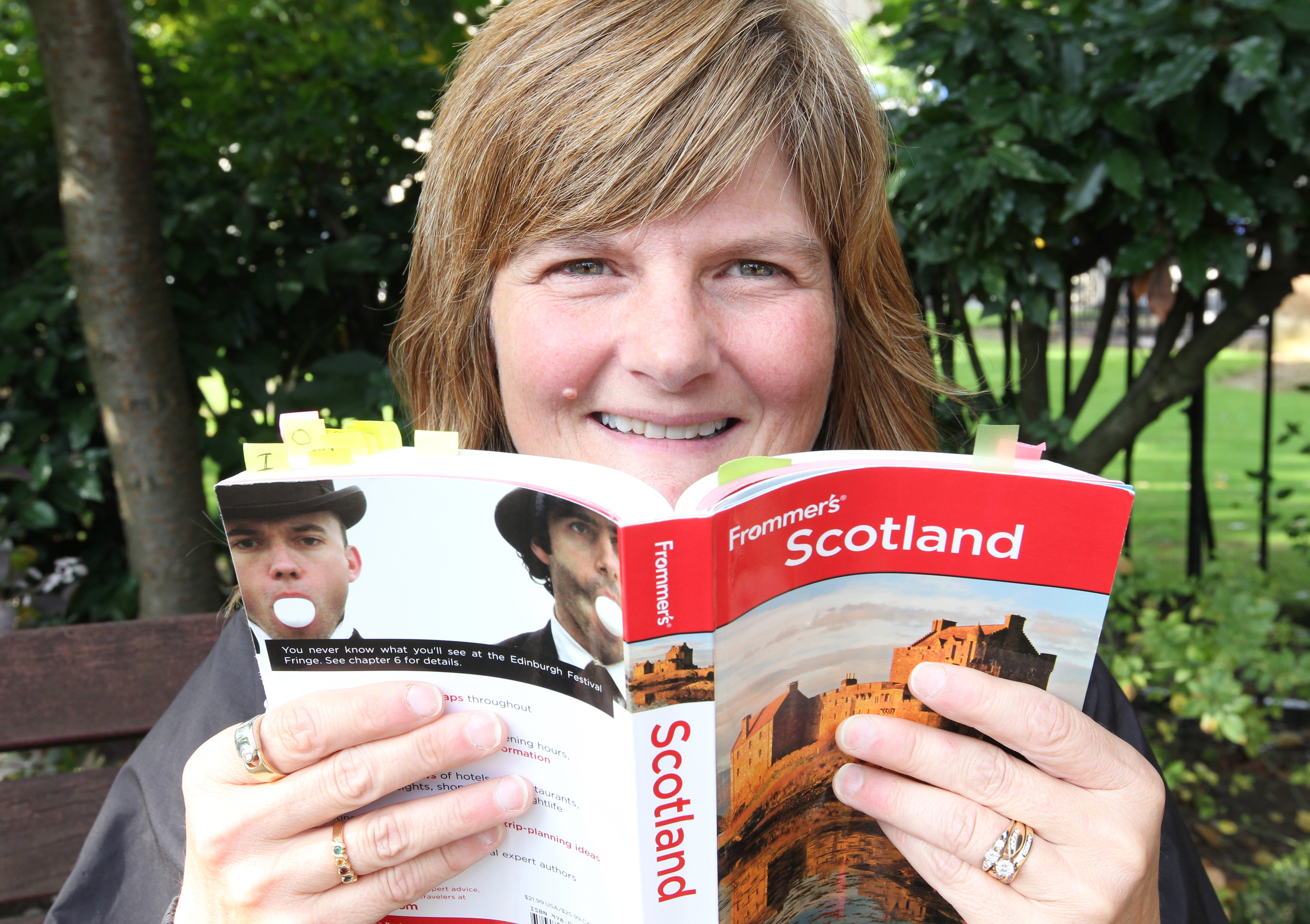
Sharon Campbell-Rayment was thrown from her horse, Malachi, at her farm in Kent Bridge, Ontario.
Knocked unconscious, she woke up days later unable to speak. When her voice returned eight weeks later, her Canadian tones were Scots.
And now, eight years on, the 52-year-old will mark the anniversary of the life-changing brain injury by watching her long awaited debut novel hit the shelves.
Falling Into The Rhythm Of Life: Life Lessons Straight From The Horse’s Mouth, to be published in June, tells the story of how Sharon coped in the aftermath of the accident, not only with her newfound Scots identity, but the completely different person she’s become.
Speaking exclusively to The Sunday Post, she said: “It’s amazing how something as simple as a tumble from a horse can change your whole life!
“Brain injuries can be hard for people to understand because there are no physical signs – but they make everything different. Eight years on, I’m still recovering.
“I think I’ve realised how precious every moment is. It was a real challenge to write the book because it brought back the emotion, fear, anxiety and pain I experienced, but I felt it was something I needed to do.
“Initially, I found I was just writing the facts. Yet through time, I got a glow of inspiration. And I found that sharing my story really helped me with moving on.
“It allowed me to talk about the brain injury, the diagnosis of being completely disabled and the challenges I faced and gives me the opportunity to bring awareness of the effects of a brain injury.”
After the fall, Sharon’s speech was peppered with words such as “wee”, “grand”, “awright” and “brilliant” – bizarre considering she had never set foot in Scotland before.
She rolled her r’s, dropped her g’s, had longer a’s and softer s’s and when collecting her thoughts uttered “em” and “um”.
The mum-of-two was diagnosed with Foreign Accent Syndrome – a rare medical condition where patients develop a foreign accent after a stroke or head trauma. She’s believed to be one of only 60 people in the world with the condition.
But the injury didn’t just affect her speech. It changed her whole life.
Sharon, who still has her Scots brogue, went from being an active, multi-tasking extrovert who served as a minister at three area United Churches and ran a horse riding school, to being an introvert who has trouble focusing and tires easily.
She said testing has shown her injury affected the executive functioning of her brain, altering her ability to multi-task, process information and make decisions.
Sharon went full circle to find comfort in her 11 pet horses, returned to riding and even transformed her horseriding retreat into an equine healing therapy centre, designed to help others heal with the animals as she did.
She also reforged her relationship with Malachi. “The horse I fell off became my neurologist, counsellor, physician and spiritual guide.”
Things are certainly different, but Sharon has embraced the changes – and used it as the perfect excuse to explore her links to Scotland.
“Doctors have said I could have Foreign Accent Syndrome for the rest of my life or it could just disappear overnight. But I don’t think it’s going anywhere fast.
“I could have ended up with any accent – French, Spanish, even Klingon – but I got Scottish.”
Sharon believed it to be a calling to trace her Scottish roots.
In 2010, two years after the accident, she travelled 3000 miles across the Atlantic to piece together the history of her Scots ancestors.
The Campbells arrived in Argyll around 1220 and settled on Lochaweside, before moving to Inverary in 1400. They emigrated to Canada more than 100 years ago.
“I hope to make it to Scotland later this year after the book is released to do some talks. The one good thing is that at least they’ll understand what I’m saying!”
READ MORE
Fans of Channel 4’s Gogglebox can’t understand Scottish family’s accent
UK kids talk in American accents because not enough British TV shows are made, claims producer

Enjoy the convenience of having The Sunday Post delivered as a digital ePaper straight to your smartphone, tablet or computer.
Subscribe for only £5.49 a month and enjoy all the benefits of the printed paper as a digital replica.
Subscribe